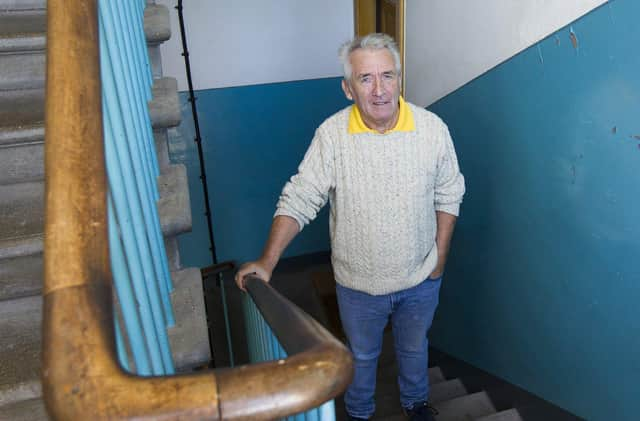Scottish lockdown not a patch on Indian version, says Teri now back home after being trapped for weeks


Alan Flockhart is now back home in Hawick’s Beaconsfield Terrace after a trip to his partner Maureen’s home in Goa, on India’s south-west coast, in January to recuperate after losing two stone in weight due to a severe cold and chest infection, both conditions unrelated to Covid-19.
As the disease spread worldwide from China, India was quick to bring in a lockdown, leaving Alan unable to get a flight back home.
Advertisement
Hide AdAdvertisement
Hide AdSo stringent were its measures that Alan needed to use subterfuge to get through checkpoints to pick up food supplies.
Despite those difficulties, the 73-year-old is full of praise for the Indian approach and compares it favourably to the relative lack of restrictions on movement he encountered in the UK when he eventually landed at London Stansted Airport in Essex last week.
Now safely home in the Borders and again under lockdown, he is able to compare and contrast restrictions prompted by the ongoing spread of coronavirus here and back in India.
He said: “I went to recover and arrived on January 15. My partner has a house in India, and she knew I was not well and she said ‘why don’t you go over there and recuperate?’
Advertisement
Hide AdAdvertisement
Hide Ad“It is nice and hot and it is a lovely house, and I was there before any of this started.
“I went there on my own and Maureen was at her home in Dumfries. I was booked there until April 15 and she was coming out anyway and stayed out for three weeks, then extended it for another month before she got the last flight home before the lockdown.
“I couldn’t get a flight after the lockdown was announced.
“When it started, that was it. The police took control then. There were roadblocks set up and police at every junction, more or less, and you had to have a reason to get past them.
“I was trying to get past one on foot one day to meet a guy who was going to give me some rolls, but to get past the police cordon, I had to pretend that I was going to a chemist to get medicine.
Advertisement
Hide AdAdvertisement
Hide Ad“I took an empty packet of medicine with me to show the police I was going to the chemist, but I actually met this guy to give me some rolls, then I went to the chemist and went through the roadblock again. That was the only time I went out in three weeks.”
Alan said he totally supports the way India has dealt with the Covid-19 pandemic, comparing it favourably to his experience in the UK, explaining: “I agree with the way they have approached it in India compared to Britain 100%.
“They did the right thing locking it down, although a lot of people were stuck. The poor workers in Delhi and Mumbai, they were really struggling with nowhere to go. Where I was is a relatively safe part of India, and I had a house to stay in. I was very lucky.”
Eventually, Alan paid £681 for a flight back home, arriving in Hawick on Easter Monday.
Advertisement
Hide AdAdvertisement
Hide AdHe added: “We all got checked when we were leaving India. We got our temperatures checked outside the airport, and if you fail the medical check you don’t fly, simple as that.
“There were 316 people on the plane, and it was a converted tanker. It was a skeleton crew on board with no food or drinks, apart from water, and no in-flight entertainment.
“When we arrived in Stansted at 10 o’clock at night, there were no medical checks whatsoever. That’s 316 people going to get their luggage with no immigration, no customs, nothing. It was defeating the whole purpose.”
Alan said he was shocked this week when he went on his first shopping trip here and found people ignoring social distancing rules.
Advertisement
Hide AdAdvertisement
Hide AdHe said: “When I was in Goa, it was very hard for everyone because of the sudden lockdown and the consequences if you didn’t stay indoors and isolate, but the result was no deaths there compared to tens of thousands here.”
The first case of coronavirus in India was reported on January 30, and, as of today, a further 19,983 had been confirmed, followed by 3,870 recoveries and 640 deaths.